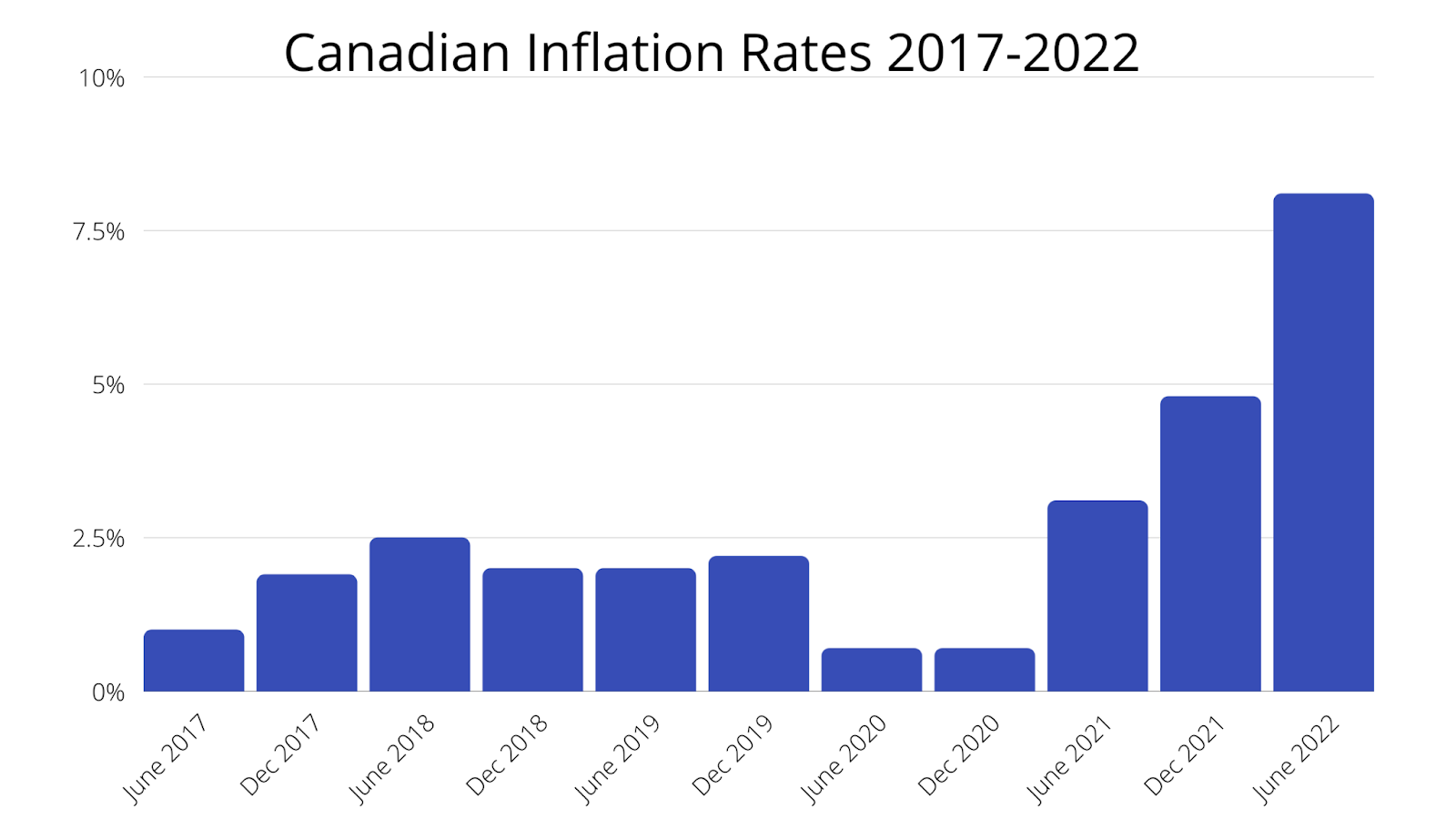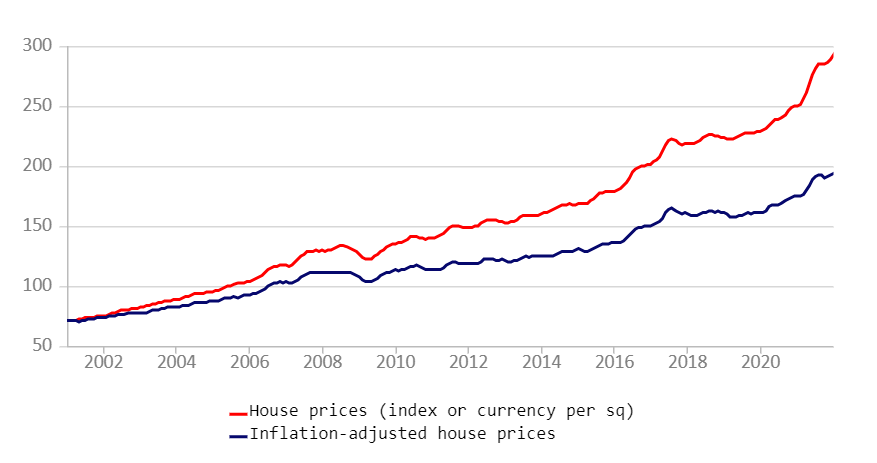
You can’t be successful in investing without considering the impacts of inflation. Our day-to-day expenses and bills aren’t the only casualty of inflation. Inflation can also seriously impact your long-term investment capital in the future if you don’t consider it when making investment decisions. A dollar today may only be worth $0.44 when you retire.
Inflation is the overall increase in the cost of goods and services over time. In Canada, there has been a rapid increase in the rate of inflation in 2022. This means that the value of a dollar decreases as the cost of goods and services increases. For example, If something cost $100 in 2002, and there was an average annual inflation rate of 2.15%, that item would cost $153 in 2022.

Inflation is driven by the supply and demand process. If we say an annual inflation rate is 4.3%, we’re looking at how much the cost of transportation, goods, services, real estate, etc., increased. There has been a substantial increase in inflation in 2022, which can be seen in the cost of gas and real estate, among other industries. Despite rising costs, the average income has only increased 5%. How can you expect your savings to compare 20 years from now?
As inflation rises, it reduces the value of your future investment capital when you pull it out for retirement or a large purchase. This can make saving for the future more complex, and the higher inflation rates rise, the more investors look for investments with high rates of return to counteract inflation.
If you were to put $5000 a year away in savings and receive 3% monthly compounded interest for 20 years, you would have $134,921. However, if inflation was at an average rate of 4.3%, that $134,921 would not be worth the same in the economy when you pulled it out 20 years later. You would have earned only 3% interest while your money lost 4.3% of its value.
The trouble with inflation is that, over time, the purchasing power of your future capital is being reduced. Not all investment types are negatively impacted by inflation in the same way. There are some investment strategies to employ that can help you to avoid losing money due to inflation.
Diversifying your portfolio is crucial in any investment plan. It’s vital when considering inflation because you’ll want to look at investments with a higher return percentage. Higher returns often come with increased risks, and diversification can help to mitigate this risk.
Some investment vehicles can be a good idea when considering the impact of inflation on your portfolio.
The stock market can be highly volatile but offers higher return potential if you can stomach the risk. The S&P 500 has seen an average return of 8% since adopting 500 stocks in 1957. However, this 8% would just break even with the 8% loss from inflation we’re seeing right now. An 8% inflation rate is not expected for too long as the Bank of Canada increases interest rates in an attempt to level inflation out.

Real assets tend to perform well despite rising interest rates. Unlike fixed- investments, such as bonds, which have more security but a lower percentage of return, tangible assets are historically reliable vehicles for competing against inflation rates. As we’ve said, inflation’s driven by an economy’s supply and demand chain. Owning things in demand can help you increase your return on investment alongside the rise in inflation.
One such real asset that can be a good investment is real estate. As inflation impacts the cost of living, rental rates increase. Because of increased rental costs, owning a rental property can be an excellent way to grow your investment along with inflation. However, as housing costs have skyrocketed and mortgage rates are increasing, owning a rental property isn’t the best move. A mortgage pool allows you to capitalize on the benefits of the real estate market related to inflation while simultaneously benefiting from increased interest rates on the receiving end of a loan.
No one can control inflation. What we can do is understand the impact it has on our investments over time and make changes to our portfolio accordingly. A mortgage pool could be the perfect alternative to consider if you’re looking for a way to rebalance and diversify your portfolio amid rising interest rates and inflation. Jordan on our team is here to answer your questions and help you understand how a MIC can help during times of high inflation.